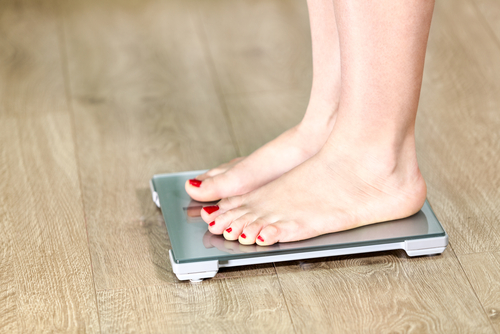Steph Gaudreau is a weight lifter and has been through a journey of body dysmorphic recovery. Recently, she took to Self magazine online to share some her disturbing and frustrating experiences posting pictures of herself online. As someone with body dysmorphia, she has been on both sides of health and fitness, from extreme obsession to extreme lack of health. Today, she loves crossfit, paleo diet lifestyles, and building like an Olympic weightlifter. She’s happy with who she is and how she looks today, a tremendous accomplishment for anyone in recovery from BDD. As she describes in her powerful article, much of that recovery was due to overcoming, or at least changing, the power of words. Words, as she emphasize, especially for body dysmorphic disorder, matter.
“We have got to stop believing that words don’t matter. It’s so easy to get sucked in to commenting on other people’s bodies, to put them down, and to gossip,” she explains. Gaudreau has taken on as a personal mission to “do better” at removing negative commentary regarding her own or other people’s bodies. To achieve the change she wants to see in the minds of people around her, she describes, she has to start with herself.
This is the challenge posed to all men and women in recovery from BDD, a mental health disorder which can affect anyone. Cognitive behavioral therapy and other thought-targeting therapy methods are instrumental in identifying the words which trigger the negative thoughts, criticism, and low self-esteem which accompany BDD. Behind every behavior, thought, and action is a deeply imbedded belief. For example, “I talk badly about myself because I believe I’m ugly and being ugly warrants negative conversation.” Human beings aren’t born with an idea of ugly or pretty, fat or skinny, better than or less than. Through various conversations, cues, environments, and social interactions, small lessons, though sometimes big and traumatic lessons, are learned. Overtime these lessons become ingrained beliefs which can lead to disordered thinking when it comes to body and body image. Body dysmorphic disorder can arise as a solitary issue or in conjunction with other issues. Depression, anxiety, eating disorders, trauma, and substance abuse are all commonly co-occurring with BDD, each with their own set of harmful words and beliefs.
Recovery from BDD starts by finding the willingness to be open to changing the way you see yourself, feel about yourself, and love yourself. You’ll find through recovery that you are worth it, because you are good, you are beautiful, and you are perfect as you are.
LEAD Recovery Center offers transitional care programs to men and women. Creating a structure of leadership and independence, our goal is to help clients heal and achieve full autonomy. Call us today for more information, at 800-380-0012.


